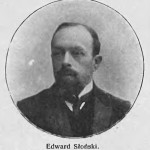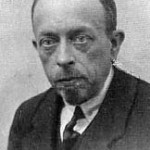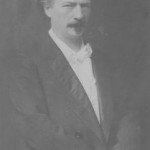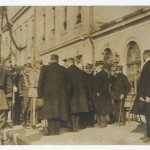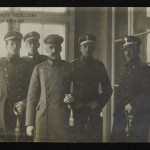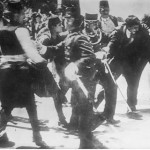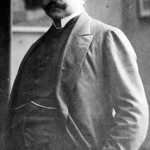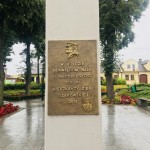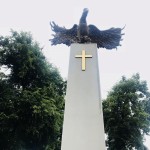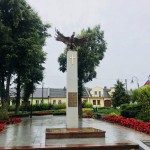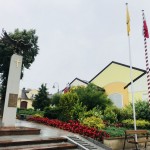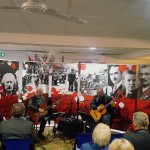The Great War part I
“Ill fate tore us asunder, brother / Ill fate and keeping guard / Between twin enemy ramparts / We look death in the face…” wrote poet Edward Słoński in September 1914. Yet, the poem ends on an optimistic note: “And each night I have a dream / THAT SHE WHO HAS NOT PERISHED / From our blood will spring”.
The fate of the Polish men who fought at the frontlines of World War I was marked by tragedy. Those from the Russian Partition had to shoot at those from the Prussian and Austrian Partitions and vice versa. In a sense, it resembled the American Civil War, where brother would kill brother on the battlefield. The only difference was that the Poles were forced to fight one another in the interest of the partitioning powers. Them, a sudden hope flared up in the midst of their fratricidal fight, a hope of independence. Józef Piłsudski made prescient declarations on the outcome of the war: first, the Central Powers would defeat Russia, then they in turn would be defeated by the Allied Powers (nobody as yet had expected the US to join the war).
Archduke Franz Ferdinand, heir to the throne of the Austro-Hungarian Empire, had been assassinated during a visit to Sarajevo on 28 June 1914. The assassination was the trigger for World War I (which until 1939 was referred to as the Great War, as nobody had expected that world wars would have to be numbered).
In Kraków (then located in Galicia) national liberties were the greatest, so much that at the celebrations for the newly laid railway to Zakopane, the first train was adorned with red and white Polish flags, an unthinkable occurrence in the Russian or Prussian Partitions. On 16 August 1914, a Supreme National Committee (NKN) was established, chaired by Juliusz Leo, the eminent Mayor of Kraków. The NKN proposed the unification – under the reign of the Habsburgs – of all Polish inhabited territories.
In Warsaw, the Central Citizens’ Committee was composed of deputies belonging to Roman Dmowski’s National Democracy movement. Heedless of his failure with the Russian Imperial Duma, Dmowski’s idée fixe was to seek autonomy for Poland within the Romanov Empire. It is impossible to list here all the various political organisations – of varied provenance – that sprang up in that historical period, not only in the Polish territories, but also in exile: in Great Britain, France, Italy, the USA, and Switzerland. The last country is of special significance because of one of its inhabitants, the great Polish pianist Ignacy Jan Paderewski, founded the Polish Central Agency in Lausanne, and later gained access to US President Woodrow Wilson, which had a colossal impact on the fate of a resurrected Poland.
For now, however, Józef Piłsudski was the first to take full military action. As early as 6 August 1914, his Polish Rifle Squads (a paramilitary organization supported by the Austro-Hungarian government, and later to become the first Polish Legions since the Napoleonic era) headed for Kielce within the Russian Partition. After a glass of wiśniówka (cherry liqueur) in the Hawełka restaurant (“perhaps the last in my lifetime” was the gallows humour of the future Colonel, Mayor of Kraków, and Governor of Lwów – in a free Poland – Władysław Belina-Prażmowski), Piłsudski spoke to the assembled forces: “From now on there shall be no Riflemen or Rifle Squads. All of you gathered here are Polish soldiers … From hence forth, your only emblem shall be the white eagle … I look to you as the cadres from whence the future Polish Army shall spring, and I greet you as the First Cadre Company.
The ‘Kielce Raid’ misfired. After a few skirmishes with the Russians, the Poles retreated to Galicia. But the fire, once kindled, was never to die down.
“History is that, which nobody wanted. It is an accident of conflicting aspirations, an accident of forces pulling in different directions and having only one in common: that none pulls in the direction pointed by the arrow.”
Bohdan Urbankowski, Józef Piłsudski – marzyciel i strateg (Józef Piłsudski – Dreamer and Strategist).
Jerzy Kotlarczyk
- Pomnik Niepodległościowy na Placu Wolności w Ożarowie (foto. Fundacja Klubów „GP”)
- Pomnik Niepodległościowy na Placu Wolności w Ożarowie (foto. Fundacja Klubów „GP”)
- Pomnik Niepodległościowy na Placu Wolności w Ożarowie (foto. Fundacja Klubów „GP”)
- Pomnik Niepodległościowy na Placu Wolności w Ożarowie (foto. Fundacja Klubów „GP”)
- Koncert Pawła Piekarczyka oraz Leszka Czajkowskiego promujący album pt.” Nieugięci i niepokorni 1914-1921″ na Zjeździe Klubów „Gazety Polskiej” w Paryżu



